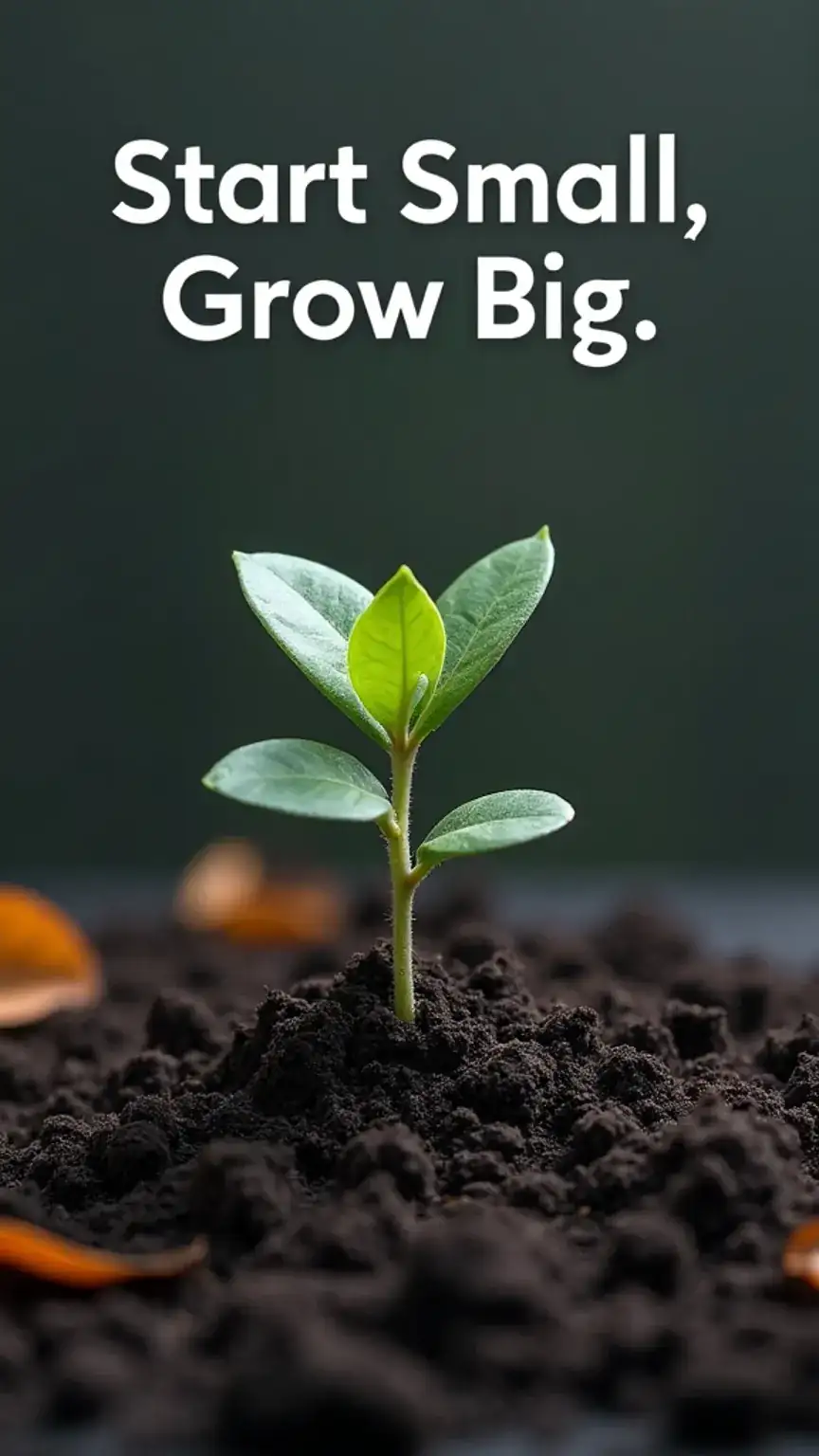Building positive habits isn’t just a buzzword; it’s the bedrock of a life well-lived. As a guy who’s navigated the choppy waters of career shifts and personal evolution, I’ve learned firsthand that consistent, positive habits are the secret sauce. They’re the quiet architects of personal growth, productivity boosts, and even stronger relationships. Think about it: a well-established morning routine can set the tone for your entire day, while regular exercise can translate into more energy and sharper focus.

However, let’s be honest, the idea of “habit building” can sound daunting, like trying to assemble IKEA furniture without the instructions. Many of us have been there, attempting to overhaul our lives in a single weekend, only to end up back where we started. The key, I’ve discovered, isn’t about monumental changes but about creating small, sustainable routines that actually stick. That’s why I’m here to share my proven strategies to help you build habits that last.
Understanding the “Why” Behind Your Habits
Before you even think about lacing up your running shoes or cracking open that self-help book, take a moment. What’s truly driving this desire for change? Identifying your “why” is paramount to habit formation. Is it about improving your physical health, boosting your career prospects, or perhaps strengthening your connections with loved ones?

For instance, Dave, a 45-year-old accountant, realized his outdated LinkedIn profile picture was hindering his client acquisition. His “why” was clear: land his dream client. By focusing on that specific goal, he found the motivation to update his professional image, leading to tangible career success. Pinpointing your core motivation makes the journey significantly less arduous.
The Art of Starting Small: Baby Steps to Big Wins
Here’s a truth bomb: trying to transform every aspect of your life overnight is a recipe for burnout. Instead, channel your inner minimalist and start small. Focus on implementing just one or two habits initially. This approach prevents you from feeling overwhelmed and dramatically increases your likelihood of success.

Consider this: instead of aiming to hit the gym for an hour daily, start with a 15-minute walk around the block. Similarly, if you want to read more, commit to just one chapter a night. These small victories build momentum, creating a positive feedback loop that fuels further habit development. Consequently, you build confidence with each small win.
Making Habits Fit Your Life: Convenience is King
Let’s face it, life is busy. Trying to force habits that don’t align with your existing lifestyle is like trying to fit a square peg into a round hole – it’s frustrating and rarely works. The secret sauce to making habits stick is ensuring they are convenient and fit seamlessly into your schedule.

If you’re not a morning person, don’t force yourself to wake up at 5 AM for a meditation session. Instead, explore evening meditation or a quick mindfulness exercise during your lunch break. Similarly, if your commute is lengthy, use that time to listen to educational podcasts related to your desired habit. Making it easy reduces resistance.
The Power of Tracking: Visualizing Your Progress
Humans are visual creatures, and seeing tangible evidence of our efforts can be incredibly motivating. That’s where habit tracking comes in. Whether it’s a simple checklist in a notebook or a sophisticated app, monitoring your progress provides a clear picture of your commitment and achievements.

Imagine marking off each day you successfully complete your new habit. This visual representation of your consistency can be a powerful reminder of how far you’ve come. It’s also a great way to identify patterns and potential roadblocks. Furthermore, seeing a streak develop can be a strong incentive to keep going.
Celebrating Your Wins: The Sweet Taste of Success
Never underestimate the psychological boost that comes from celebrating your accomplishments, no matter how small. When you acknowledge and reward yourself for sticking to your habits, you reinforce the positive behavior. This makes the habit more enjoyable and increases its longevity.

Take it from Dave again: after successfully revamping his LinkedIn profile, he treated himself to a new pair of affordable loafers, a small reward that reinforced his positive action. Your celebration doesn’t need to be extravagant. It could be enjoying your favorite meal, watching a movie, or simply taking a moment to appreciate your dedication.
Patience is a Virtue: Embracing the Long Game
Building lasting habits is a marathon, not a sprint. There will be days when you miss a session or fall off track. This is perfectly normal and, frankly, expected. The crucial element here is not perfection but persistence. Don’t let a slip-up derail your entire effort.
Instead of dwelling on the missed day, simply acknowledge it and get back on track the next day. Think of it as a minor detour, not a dead end. Consistency over time is what truly matters. Furthermore, understanding that setbacks are part of the process can reduce self-criticism and foster a more resilient approach to habit formation.
Leveraging Technology: Your Digital Habit Companion
In today’s digital age, technology offers a wealth of tools to aid in habit formation. Numerous apps and platforms are designed to help you track your progress, set reminders, and even provide community support. Finding the right digital companion can significantly enhance your habit-building journey.

Consider using habit tracker apps like Habitica or HabitBull, which gamify the process, making it more engaging. Productivity tools such as Todoist or Evernote can help you organize your goals and action steps. These resources can provide the structure and accountability needed to stay on course.
The Habit Loop: Understanding the Mechanics
Charles Duhigg, in his seminal book “The Power of Habit,” breaks down habit formation into a simple loop: cue, routine, and reward. Understanding this loop is fundamental to consciously designing and changing your habits. The cue is the trigger that initiates the behavior, the routine is the behavior itself, and the reward is the positive outcome that reinforces the loop.
For example, the cue might be feeling stressed. The routine could be reaching for a cigarette. The reward is a temporary sense of relief. To change this, you’d keep the cue (stress) and reward (relief) but change the routine to something healthier, like deep breathing exercises. Consequently, you can consciously rewire your habits.
Making Habits Social: Accountability and Support
Humans are social creatures, and leveraging this can be incredibly beneficial for habit building. Sharing your goals with a trusted friend, family member, or even an online community can provide invaluable accountability and support. Knowing that others are aware of your commitment can be a powerful motivator.
You might ask a friend to join you for morning runs or create a shared goal with your partner. For those seeking a broader network, online forums or social media groups dedicated to habit formation can offer encouragement and shared experiences. Similarly, women looking to support the men in their lives can find success by encouraging and participating in new habits together.
Designing Your Environment for Success
Your surroundings play a significant role in your ability to build and maintain habits. By consciously designing your environment, you can make desired behaviors more accessible and undesired behaviors more difficult. This proactive approach can significantly reduce the mental energy required to stick to your goals.
If you want to eat healthier, keep healthy snacks like fruits and nuts visible and easily accessible, while hiding processed foods. For those aiming to read more, keep a book on your nightstand or coffee table. Similarly, if you want to reduce screen time, put your phone in another room during designated periods. This environmental design makes the desired habit the path of least resistance.
The Role of Identity in Habit Formation
A powerful, often overlooked, aspect of habit building is aligning your habits with your desired identity. Instead of thinking “I want to run a marathon,” consider “I am a runner.” This subtle shift in identity makes the habit feel less like an external task and more like an intrinsic part of who you are.
When your actions align with your self-perception, they become more ingrained and sustainable. For example, if you want to be a more organized person, start by adopting small organizational habits. As you consistently practice these, your identity as an organized individual will strengthen, making further organizational habits feel natural.
Overcoming Common Habit-Building Pitfalls
Despite best intentions, several common pitfalls can derail even the most determined individuals. One of the most frequent is the “all-or-nothing” mindset. This thinking leads to discouragement when a minor slip-up occurs. Remember, progress isn’t linear.
Another pitfall is not having clear, actionable steps. Vague goals like “be healthier” are less effective than specific ones like “walk 30 minutes, 5 days a week.” Furthermore, a lack of patience can lead to abandoning habits before they have a chance to solidify. Building lasting habits requires consistent effort over time.
Conclusion: Your Habit-Building Blueprint
Building positive habits is a transformative journey. It’s about making conscious, consistent choices that shape your future self. By identifying your “why,” starting small, making habits convenient, tracking your progress, celebrating wins, and being patient, you’re setting yourself up for lasting success.
Remember the habit loop: cue, routine, reward. Harness the power of your environment and your identity to support your goals. Don’t let common pitfalls deter you; embrace the process with resilience and self-compassion. Your future self will undoubtedly thank you for the effort you put in today.
Ready to own your image and build a more fulfilling life? Start by identifying one small habit you want to cultivate this week. Share your #StyleUpgrade or #HabitBuild journey on Pinterest or your favorite socials! Tag a friend who needs a little nudge to start building positive habits today!




